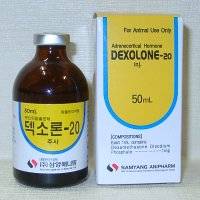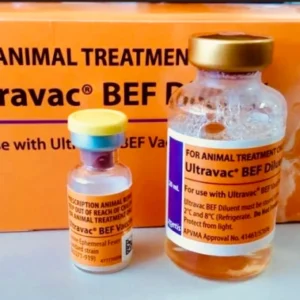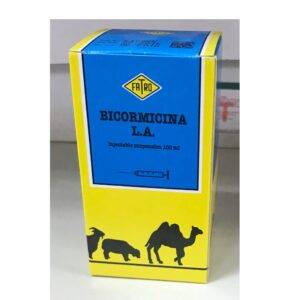Dexolone 20
Dexolone 20 is a veterinary corticosteroid containing dexamethasone, which is used for its potent anti-inflammatory and immunosuppressive properties. It is commonly prescribed to treat various conditions in animals, such as horses, cattle, dogs, and cats. Here’s an in-depth look at Dexolone 20, including its uses, dosage, side effects, and precautions:
Active Ingredient:
Dexamethasone: A synthetic glucocorticoid that mimics the actions of natural corticosteroids produced by the adrenal glands. It is highly effective at reducing inflammation, suppressing the immune response, and managing pain.
Formulation:
Dexolone 20 typically refers to a 20 mg/mL concentration of dexamethasone, which is available as an injectable solution.
Uses of Dexolone 20:
Dexolone 20 is used in veterinary medicine to manage a variety of conditions that benefit from its anti-inflammatory and immunosuppressive effects:
Anti-Inflammatory:
Treats inflammation associated with musculoskeletal disorders, such as arthritis, tendonitis, bursitis, and other injuries affecting the joints, tendons, or muscles.
Allergic Reactions:
Effective in treating acute allergic reactions like anaphylaxis, insect bites or stings, and allergic skin conditions like dermatitis.
Respiratory Conditions:
Commonly used to manage respiratory issues, such as chronic obstructive pulmonary disease (COPD) or heaves in horses, by reducing airway inflammation and easing breathing.
Immune-Mediated Disorders:
Administered in cases of autoimmune diseases, where the animal’s immune system mistakenly attacks its own tissues (e.g., immune-mediated hemolytic anemia, thrombocytopenia).
Shock and Trauma:
Helps stabilize animals experiencing shock due to trauma, severe injury, or surgery. It reduces inflammation and supports recovery.
Endocrine Disorders:
Used in the treatment of adrenal insufficiency, where the animal is unable to produce sufficient natural corticosteroids.
Cancer-Related Inflammation:
Often used in palliative care to reduce pain and inflammation in animals with cancer.
Dosage and Administration:
Administration: Dexolone 20 is typically administered as an intravenous (IV), intramuscular (IM), or subcutaneous (SC) injection, depending on the condition and species being treated.
Dosage:
The dose and frequency of administration depend on the severity of the condition, the animal’s weight, and species.
Horses: Typically, the dose ranges from 5 mg to 20 mg depending on the severity of the condition being treated.
Cattle: Similar dosage ranges are used.
Dogs and Cats: The typical dosage is 0.1 mg/kg to 0.5 mg/kg of body weight.
Note: Always follow the veterinarian’s dosage instructions carefully to avoid complications or side effects.
Side Effects:
Like all corticosteroids, Dexolone 20 can cause a range of side effects, especially with long-term or high-dose use:
Increased Thirst and Urination: Dexamethasone can cause polydipsia (increased thirst) and polyuria (increased urination).
Increased Appetite: Weight gain may occur due to increased hunger.
Immune Suppression: Long-term use suppresses the immune system, increasing the risk of infections.
Gastrointestinal Issues: Prolonged use can lead to stomach ulcers, gastrointestinal bleeding, or vomiting.
Laminitis in Horses: One of the serious side effects of corticosteroids in horses is the increased risk of laminitis, a painful inflammation of the hoof.
Adrenal Suppression: Long-term corticosteroid use can suppress the adrenal glands, which can result in adrenal insufficiency if the medication is stopped suddenly.
Muscle Wasting and Weakness: Long-term or high doses can cause muscle atrophy and generalized weakness.
Electrolyte Imbalance: Dexamethasone can cause sodium retention and potassium depletion, leading to imbalances in electrolytes.
Precautions:
Gradual Tapering: When stopping Dexolone 20 after long-term use, it is important to taper the dose gradually to avoid adrenal insufficiency, a condition where the adrenal glands cannot produce enough corticosteroids.
Avoid in Active Infections: Dexamethasone suppresses the immune system, so it should not be given to animals with untreated bacterial, viral, or fungal infections unless they are also receiving appropriate antimicrobial therapy.
Pregnancy: Dexolone 20 should be used cautiously in pregnant animals as it can induce labor or cause abortion in some species.
Preexisting Conditions:
Animals with diabetes, heart disease, kidney disease, or gastrointestinal ulcers should be carefully monitored while receiving dexamethasone, as it may exacerbate these conditions.
Liver disease: Dexamethasone can affect liver function, so animals with liver conditions should be closely monitored.
Use with NSAIDs: Combining corticosteroids like Dexolone 20 with non-steroidal anti-inflammatory drugs (NSAIDs) can increase the risk of gastrointestinal ulcers and bleeding.
Contraindications:
Untreated Infections: Dexolone 20 should not be used in animals with active, untreated infections due to its immune-suppressing effects.
Diabetes: Use with caution in animals with diabetes as it can elevate blood sugar levels.
Pregnancy: Should be used cautiously in pregnant animals due to the risk of fetal harm or abortion.
Drug Interactions:
NSAIDs: Increased risk of gastrointestinal ulcers and bleeding when used with non-steroidal anti-inflammatory drugs.
Diuretics: Dexamethasone may cause electrolyte imbalances, particularly when combined with diuretics that cause potassium loss.
Insulin and Antidiabetic Drugs: Dexamethasone may reduce the effectiveness of insulin or other diabetic medications by raising blood glucose levels.
Storage:
Dexolone 20 should be stored in a cool, dry place away from direct sunlight. Avoid freezing and keep out of reach of children and animals.
Conclusion:
Dexolone 20 is a powerful corticosteroid used to manage inflammation, allergies, immune-mediated diseases, and other conditions in animals. While effective, it must be used with caution due to the risk of side effects, particularly with prolonged or high-dose use. It is essential to follow the dosage and administration guidelines provided by the veterinarian and monitor the animal closely for any signs of adverse effects.
Proper use of Dexolone 20 can provide relief from painful inflammatory conditions and improve the quality of life in animals, but responsible management is key to minimizing risks.





Reviews
There are no reviews yet.